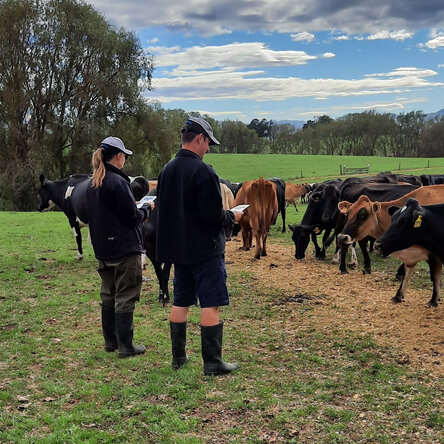Franklin Vets
Franklin Vets - excellence in veterinary care for dairy, farming, lifestyle, equine and household pets. BESTPRACTICE ACCREDITED NZ.
Your account is powered by Storbie. To edit your profile visit my.storbie.com
Your account is powered by Storbie. To edit your profile visit my.storbie.com

Mature cows calving at a body condition score (BCS) of 5.0 have been shown to produce more milk solids during the season and are on average more likely to get in calf in the mating period. Cows calving at a 4.0 or 4.5 are more likely to be below a BCS of 4.0 at the start of mating, these cows have a lower chance of cycling and getting pregnant. Cows that calve overweight at a BCS of 6.0+ are likely to have excessive weight loss after calving, which also leads to poor reproductive outcomes.
One of the most important decisions on how to achieve an appropriate BCS at calving is the dry-off date.
Many of our Franklin Vets clients now routinely carry out a whole herd body condition score in February or March before drying off. Every cow is scored, and her result is entered against her tag number. If we have expected calving dates for the herd we can then calculate when each cow should be dried off, thus a cow in light body condition but who is a late calver may milk on longer than a fat early calver. This ensures that every cow is dried off early enough to achieve a BCS of 5 at calving while also milking heavier and late-calving cows to maximise days in milk.
So, if achieving optimal calving body condition scores while maximising days in milk is of interest to you, an individualised herd body condition score and dry-off report is what you’re after. Speak with your local FVS Vet to discuss the options, we can perform an individual visit or can incorporate BCS visits into a full animal health monitoring package such as WelFarm.
Dr Brent Neal BVSc MANZCVS Veterinary Pharmacology
Franklin Vets - excellence in veterinary care for dairy, farming, lifestyle, equine and household pets. BESTPRACTICE ACCREDITED NZ.



